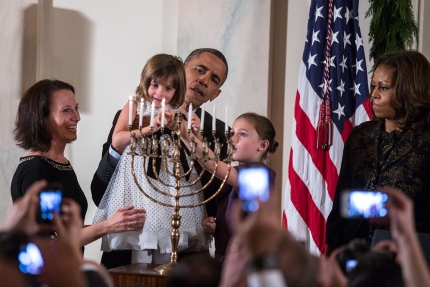“I have a business proposition for you.”
Amit’s Israeli accent was thick and I was having trouble understanding him over the phone. I pushed the little piece of plastic further into my ear and plugged the other with my forefinger. “What’s that, Poo-Bear?” I replied.
His green-card had expired and he was currently working as an illegal immigrant in Massachusetts. I hadn’t seen him in four months. It was good to hear his voice.
“I want to tell you a story,” he murmured. I thought back to the summer when he had told me stories, every-day-stories, about Israel, about the army, about his family while lying on the couch in the employee lounge at the Camp Lakeland, a Jewish overnight camp. His stories were always a great relief from the hot sun and the pesky children. I remembered how he used to stroke my hair as I snoozed on his shoulder after a morning’s work. It never went any farther than that.
I have two bowls,” he continued. My tongue popped out of the corner of my mouth and I closed my eyes to drown out the noise of the student center. “One bowl represents America, and the other, Israel. G-d has written out opportunities for me on little slips of paper: he put ten papers in the Israel bowl and one hundred papers in the America bowl. Life is a minute long and I need to take as many opportunities as I can. Which bowl do I reach for?”
It wasn’t a difficult question, but I was confused as to where this story would lead. “Well,” I paused, “You’d pick the America bowl.”
“Exactly! I always knew you were a smart girl. I need your help to get the America bowl.” At this, my spine began to tingle and I chewed on my thumbnail as a result of my rising anxiety. “What do you need me to do?”
“I want to marry you. You are my best friend and I trust you. Just for business.” At that, my jaw dropped.
The Woman Named Miriam Sivan
Miriam Sivan was tall and, at first glance, it was surprising to know she was American. Her eyes were dark behind olive-colored eyelids, and her black hair was scooped up off her face. It wasn’t until she began to speak that I recognized a little bit of home. She was loud and commanded attention. But I saw that Israel had penetrated her with wide hand gestures and facial expressions. She has been living in Haifa for a little over a decade after growing up in Manhattan with her parents, who were native Israelis. She has a daughter.
Even with the bombing that plasters the front pages of the New York Times at least once a week and the war that took place over the summer, Miriam is happy with her decision to move back to her homeland. “{My daughter} is safer in Israel than in Manhattan We’re still in a situation where when robbers come in, they just steal your stuff.” She seemed calm as if the war that had taken place in Haifa had never happened. I had watched a friend of mine cry for her family back home; Miriam simply brushed the violence of her shoulder like a speck of lint.

When asked what it was like to live so close to being killed, Miriam shrugged. “We are all surrounded by death; in Israel, we are in a state of war.”
She continued, “I don’t watch the news. It’s not denial you have no choice but to function.” I couldn’t imagine living like that. She could see the shock in our faces as she spoke about the bombings nonchalantly. She added, “The war in Haifa was an issue of personalities becoming hysterical won’t change if it’ll hit me or not.”
From America to Israel
Still, even aside from the war, moving from America to Israel is quite a change. Miriam’s parents were both born and raised in Israel; her father fought underground against the British and the Arabs in the War of Independence. When moving to the United States, Miriam’s mother had no idea what she was getting herself into she didn’t realize she’s be crossing an ocean. Still, both of her parents showed concern when Miriam first expressed her interest in moving back to her homeland. Although she speaks Hebrew fluently, they disagreed with Miriam’s decided she would be facing much more than language differences. Men, for example.
I pricked up my ears as someone in the class asked her about the interaction between men and women. Having been both married and divorced in Israel, Miriam is able to say that “Israel is much more sexist and not apologetic about it.” She validated my own experiences with Israeli men: they’re fun and flirtatious and relatively nicer than men in the U.S. As for inter-racial relationships, they are non-existent. At Haifa University, where Miriam is a professor of English Language and American Literature, Israelis and Arabs interact daily, but that doesn’t change the social guidelines.
I confronted her about Amit. “He’s not the only young person looking for a way out,” she said. She explained the feelings of claustrophobia that often accompany a lifetime in Israel. It was an issue of values, she explained. Yes, if you want economic opportunity, America is the place to be. But Miriam felt a strong connection with the land. “I feel more American {than Israeli},” she said. “But I’m connected to the ancient homeland. She told me that many people do leave the country in search of bigger and better things.
She looked at me reassuringly. “But they always come home”
I haven’t spoken to Amit since October. I was sitting in my boyfriend’s living room, watching the Philadelphia Eagles game and enjoying a beer when he called me again with hope in his voice.
“Well, what do you think? You will marry me?”
My answer suddenly became almost too hard to say. The words broke apart in my mouth and tripped off my lips into the receiver.
“Amit Poo-Bear I’m… I’m sorry, but I can’t. It’s just… my financial aid… my age…”
“But I would take care of you! I love the states, and you are my friend.”
“And you plan on staying married to me forever, Amit?”
“Well… no. I have a girlfriend. Here’s the plan: we get married (I get you to ring and everything), we do interviews, I get Green Card, we have sex (just kidding, maybe), and then I divorce you.”
I apologized and refused his offer.
“Well, Miriam, you take good care. I’m going to come to visit you soon. I miss you.”
“I miss you too. Good luck with everything. I’m sure you’ll find a wonderful American girl.”
He laughed. “I have already! She just won’t marry me!”






